Dental Hygiene and cancer
|
Dental Hygiene and cancer |
|
| Evidence and practical tips to keep the teeth clean |
|
|
|
There is emerging evidence that poor dental hygiene may contribute to an increased risk of cancer, in particular bowel cancer. This page provides some of the background evidence from published research plus some practical tips on how to maintain or improve dental hygiene:
 A study from the Karolinksa Institute Sweden has linked poor dental hygiene
with a potentially higher risk of cancer. They followed 1,390 participants
aged between 30 and 40 years old with good oral health with questionnaires for
24 years. Greater levels of dental plaque were associated with a 79% increase
in odds of dying of cancer. Although authors agree this link may be causal it
certainly makes sense to ensure the mouth and teeth are kept healthy and
clean.
A study from the Karolinksa Institute Sweden has linked poor dental hygiene
with a potentially higher risk of cancer. They followed 1,390 participants
aged between 30 and 40 years old with good oral health with questionnaires for
24 years. Greater levels of dental plaque were associated with a 79% increase
in odds of dying of cancer. Although authors agree this link may be causal it
certainly makes sense to ensure the mouth and teeth are kept healthy and
clean.
Two further studies published in Genome Research used cutting-edge metagenomics techniques to explore the pathogens present in colorectal cancer, they uncovered that the microbe Fusobacterium nucleatum could be implicated in colon cancer. This microb is associated with inflammatory and infectious diseases, including periodontal disease can be prevented by good dental hygiene.
Tips to keep the teeth clean
Avoid sugary foods and drinks. After a meal or snack swill your mouth out with water to remove the bulky debris from between the teeth
Brush your teeth with fluoride toothpaste twice a day for at least two minutes to help keep your teeth and mouth healthy and remove the build up of plaque (A film of bacteria that coats your teeth if you don't brush them properly. It contributes to gum disease, tooth decay and cavities. You need to concentrate on the nooks and crannies to make sure you remove as much plaque and leftover bits of food as possible.
Aim to brush your teeth for at least two minutes in the morning before breakfast and last thing at night before you go to bed. Never brush your teeth straight after a meal as it can damage your teeth, especially if you've had fruit, fizzy drinks, wine or any other food that contains acid.This is because tooth enamel is softened by the acid and can be worn away by brushing. Instead, wait an hour after a meal before brushing your teeth to give your saliva chance to neutralise the acid.
Type of toothbrush: For most adults, a toothbrush with a small head and a compact, angled arrangement of long and short, round-end bristles is fine. Medium or soft bristles are best for most people. Use an electric brush with an oscillating or rotating head. BIt doesn't matter whether you use an electric or manual toothbrush. They're both equally good as long as you brush with them properly. However, some people find it easier to clean their teeth thoroughly with an electric toothbrush.If in doubt, ask your dentist.
- Replace your brush or brush attachment every three months.
- Never share your toothbrush as this can spread infections
- Brush your teeth twice daily with fluoride toothpaste for at least two minutes.
- Place the head of your toothbrush against your teeth, then tilt the bristle tips to a 45 degree angle against the gum line.
- Move the brush in small circular movements, several times, on all the surfaces of every tooth.
- Brush the outer surfaces of each tooth, upper and lower, keeping the bristles angled against the gum line.
- Use the same method on the inside surfaces of all your teeth.
- Brush the chewing surfaces of the teeth.
- To clean the inside surfaces of the front teeth, tilt the brush vertically and make several small circular strokes with the toe (the front part) of the brush.
- Brushing your tongue will freshen your breath and clean your mouth by removing bacteria.
Type of toothpaste: The cleaning agents and particles in toothpaste help to remove plaque from your teeth, keeping them clean and healthy. Most toothpastes also contain fluoride, which helps to prevent and control cavities. Itís important to use a toothpaste with the right concentration of fluoride. Check the packaging to find out how much fluoride each brand contains.
- Children aged up to three: use a smear of toothpaste containing no less than 1,000ppm (parts per million) fluoride.
- Children aged three to six: use a pea-sized amount of toothpaste containing 1,350-1,500ppm fluoride.
- Adults: use a toothpaste that contains at least 1,450ppm fluoride.
- It's fine for babies and children to use the family toothpaste rather than a special children's toothpaste, provided it contains the right concentration of fluoride.
How to floss: Flossing isn't just for dislodging food wedged between your teeth. Regular flossing may also reduce gum disease and bad breath by removing plaque that forms along the gum line.
- Take 30-45cm of floss and grasp it so that you have a couple of inches of floss taut between your hands.
- Slip the floss between the teeth and into the area between your teeth and gums, as far as it will go.
- Floss with 8 to 10 strokes, up and down between each tooth, to dislodge food and plaque.
- Floss at least once a day. The most important time to floss is before going to bed.
- You can floss before or after brushing.
- Avoid using toothpicks to remove trapped food from between your teeth, as you could cause your gums to bleed, which can lead to an infection.
Mouthwash? Yes, using a mouthwash after brushing your teeth can help get rid of any last bits of bacteria or leftover food that you might have missed with your toothbrush.Many mouthwashes contain alcohol, so they're not suitable for children, as they could swallow them accidentally. If you use a mouthwash with alcohol, you may get a very dry mouth and dry, cracked lips due to the drying effect of the alcohol. You can avoid this by using an alcohol-free version.
Mouth care during cancer treatments: Chemotherapy can affects rapidly dividing normal cells such as those that make up the lining of the mouth and gut. This may result in inflammation and ulceration of the mouth lining causing pain and discomfort; Radiotherapy in or around the area of your mouth can make it dry and sore. Inflammation of the mouth is called mucositis. In these cases or if your white cell count is low after treatment, you will be susceptible to oral infections such as thrush (candida) or cold sores (herpes simplex). All these situations increase the risk of plaque, dental caries and tooth decay. Careful attention to mouth care will help reduce the risks of infection and the following instructions are designed to help you keep your mouth clean and comfortable. Oral mucositis often can be painful, and this in turn can make it difficult to eat and drink. (see month care guidelines during cancer treatments fro more details)
- Clean regularly but avoid trauma to the gums
- Use a softer tooth brush
- Floss gently
- Avoid sugary drinks and food
|
Other helpful resources and links |
 Cancernet-UK:
What
is cancer; About
specific cancers;
Breast |
Prostate |
Bowel. About
cancer
treatments; Chemotherapy
|
Radiotherapy |
Hormones | Biological
agents | Complementary.
Lifestyle
advice;
Exercise | Diet |
Smoking | Sunbathing
| Alcohol. Cope
with symptoms; Traveling
| Insurance | Tests
for cancer | Clinical trials. ...site
map Cancernet-UK:
What
is cancer; About
specific cancers;
Breast |
Prostate |
Bowel. About
cancer
treatments; Chemotherapy
|
Radiotherapy |
Hormones | Biological
agents | Complementary.
Lifestyle
advice;
Exercise | Diet |
Smoking | Sunbathing
| Alcohol. Cope
with symptoms; Traveling
| Insurance | Tests
for cancer | Clinical trials. ...site
map |
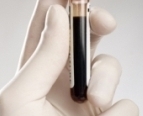 Micro-nutrient
testing Empower yourself to make dietary
choices specific to your personal make up. This Cancer Risk Nutritional
Profile, analyses your blood profile and recommends specific dietary and
supplement advice to ensure you have the best possible nutritional
status to fight cancer an aid recovery from treatments....read
more Micro-nutrient
testing Empower yourself to make dietary
choices specific to your personal make up. This Cancer Risk Nutritional
Profile, analyses your blood profile and recommends specific dietary and
supplement advice to ensure you have the best possible nutritional
status to fight cancer an aid recovery from treatments....read
more |
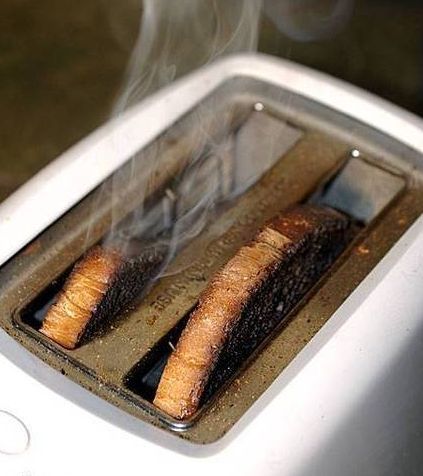 Download
a free chapter describing how to avoid cancer forming chemicals
(Carcinogens) in our
diet and environments from the new edition of the best selling evidence
based book "Lifestyle
after Cancer - the facts" Download
a free chapter describing how to avoid cancer forming chemicals
(Carcinogens) in our
diet and environments from the new edition of the best selling evidence
based book "Lifestyle
after Cancer - the facts"
|
 Make
a will (or living will)
Cancernet has teamed up with a leading UK lawyer to drive down the cost
of making a solicitor checked will. This reliable, easy to
use, online resource ensures your assets (money, property, jewellery,
etc) go to the person you want and not those you least want. Cancernet-glossLegal wills start from £39....read
more Make
a will (or living will)
Cancernet has teamed up with a leading UK lawyer to drive down the cost
of making a solicitor checked will. This reliable, easy to
use, online resource ensures your assets (money, property, jewellery,
etc) go to the person you want and not those you least want. Cancernet-glossLegal wills start from £39....read
more |
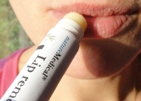 Protect
your lips during chemotherapy There is
evidence that natural oil based creams are better than petroleum based
creams. natureMedical lip balm has been specifically design to
soothe and moisturise the lips during and after chemotherapy or after
sun exposure. It only contains only natural waxes and essential oils
selected for their anti-inflammatory and DNA stabilizing properties...read
more/order Protect
your lips during chemotherapy There is
evidence that natural oil based creams are better than petroleum based
creams. natureMedical lip balm has been specifically design to
soothe and moisturise the lips during and after chemotherapy or after
sun exposure. It only contains only natural waxes and essential oils
selected for their anti-inflammatory and DNA stabilizing properties...read
more/order |
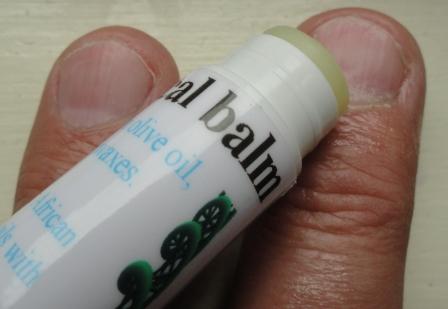 Protect
your nails during chemotherapy. Nails can
become painful and disfigured during and after chemotherapy. We describe
the latest nail care guidelines and number of useful tips to keep
them healthy, including cooling and moisturizing ...read
more Protect
your nails during chemotherapy. Nails can
become painful and disfigured during and after chemotherapy. We describe
the latest nail care guidelines and number of useful tips to keep
them healthy, including cooling and moisturizing ...read
more |
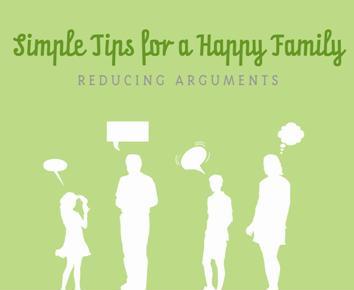 Look
after your family after cancer
- A diagnosis of cancer can cause a strain on
family harmony. With emotions running high its not a good time to be upset
further by destructive arguments. This practical little book has
identified the situations where arguments are most likely to happen and
provides simple tips to navigate around them...download
£1.99 Look
after your family after cancer
- A diagnosis of cancer can cause a strain on
family harmony. With emotions running high its not a good time to be upset
further by destructive arguments. This practical little book has
identified the situations where arguments are most likely to happen and
provides simple tips to navigate around them...download
£1.99 |
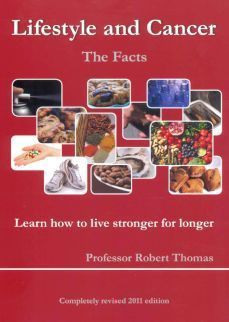  Lifestyle
and cancer - the facts.
This 2011, edition with a foreword
from Paula Radcliffe has been extensively re-written with
evidence from the latest research from around the world which
demonstrates how diet, exercise and lifestyle changes can; help avoid
cancer (read
chapter 9 free), cope with treatments side
effects; slow the rate of progression of cancer and help prevent
relapse. This comprehensive essential
lifestyle guidebook can be ordered
online (£8.95), or downloaded via
kindle Lifestyle
and cancer - the facts.
This 2011, edition with a foreword
from Paula Radcliffe has been extensively re-written with
evidence from the latest research from around the world which
demonstrates how diet, exercise and lifestyle changes can; help avoid
cancer (read
chapter 9 free), cope with treatments side
effects; slow the rate of progression of cancer and help prevent
relapse. This comprehensive essential
lifestyle guidebook can be ordered
online (£8.95), or downloaded via
kindle |
 Prepared
for cancer treatments. Patients and
professionals, teamed up with Sue Lawley to produce this 21 minute
film which explains chemotherapy & radiotherapy while you watch
patients, describing their experiences, side effects and methods to
alleviate them. Awarded the NHS communication prize ... read
more / order individually or in bulk for your oncology department Prepared
for cancer treatments. Patients and
professionals, teamed up with Sue Lawley to produce this 21 minute
film which explains chemotherapy & radiotherapy while you watch
patients, describing their experiences, side effects and methods to
alleviate them. Awarded the NHS communication prize ... read
more / order individually or in bulk for your oncology department |
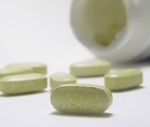 Keep-healthy.com
Practical evidence based advice on healthy living including ways to
naturally reduce cholesterol, reduce blood pressure, keep healthy
eyesight, hearing, maintain a healthy
weight and level of fitness. Includes advice on supplements and other
useful products...link Keep-healthy.com
Practical evidence based advice on healthy living including ways to
naturally reduce cholesterol, reduce blood pressure, keep healthy
eyesight, hearing, maintain a healthy
weight and level of fitness. Includes advice on supplements and other
useful products...link |
 Support
groups and self help organisations
throughout the UK and internationally. Links to Asian
support organisations; Read patient
stories, poems and links to the Cancer
active website addressing a wide range of complementary
issues related to cancer and their a quarterly magazine (ICON).. submit
a link to your group Support
groups and self help organisations
throughout the UK and internationally. Links to Asian
support organisations; Read patient
stories, poems and links to the Cancer
active website addressing a wide range of complementary
issues related to cancer and their a quarterly magazine (ICON).. submit
a link to your group |
Site map | About us | Glossary | Contact us | Disclaimer | Our sponsors | Advertise on Cancernet